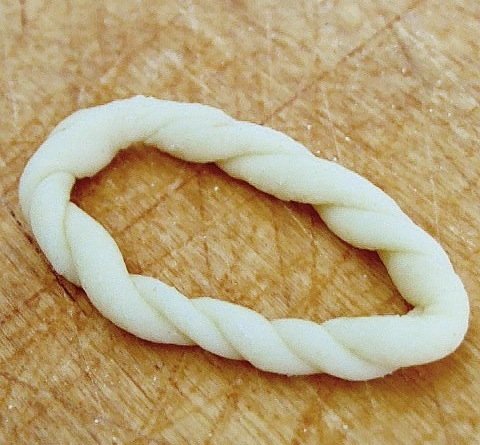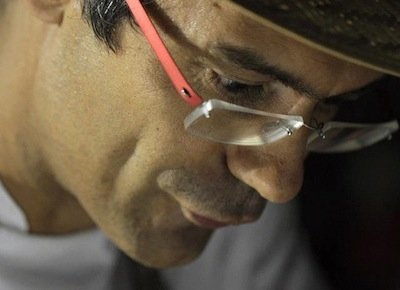When Paolo Marchi invited me to hold a lecture dedicated to pasta, I accepted without hesitation: my link with this element of national cuisine is indissoluble. In order to recuperate the tradition of the pasta from my island, Sardinia, two years ago I decided to move to a small village called Siddi in Marmilla, once the headquarters of the largest Sardinian pasta industry, closed in the Eighties, as many others in Italy.

Lorighittas, a kind of pasta from Morgongiori
Initially, I was moved by the desire to preserve and recuperate the memory, from a society growingly more distracted that tends to remove traditions. In Sardinia a huge number of local pastas exist, even from one village to the other. For instance,
marraconis fibaus in Siddi,
lorighittas in Morgongiori,
tallutzas in Pompu and many more. Unfortunately, as is often the case, parochialism instils ideas of alleged superiority between one kind and the other: there’s no bigger mistake. I believe, and I do so every day, that an effort should be made to recuperate and endorse this important traditional knowledge, that women, often kept in the shadow, have managed to transmit throughout the centuries.
What I’ve understood is that it’s not enough to preserve, but you also need to experiment, contaminate and, why not, invent, starting from what we have and what we have risked to lose: high quality wheat. Today we watch a dispute between the purists who support strictly artisanal pasta and those who use industrial processes. Unfortunately, this is an example of Italian-style fans, unconsciously favouring those who produce with no attention to quality. The attention for products that are almost unique is essential but we cannot forget that quality needs to be diffused in daily life, and thus also accessible.

Roberto Petza from San Gavino Monreale, Sardini, 45 years old in a few days
After WWII, Sardinia became a land of great expectations, repaid with big delusions. The first one was that of industrialization, with which cathedrals were built in the desert inducing people to leave the fields with the illusion of a permanent job which in fact resulted in decades of redundancy wages. The second, more recent one, was that of making everyone believe that we could live on tourism alone, that tourists would arrive by the million, ready to spend any amount of money to be in Sardinia. Today tourism is one of the greatest resources but to make sensible strategies flourish, it is necessary to do much more: to study, travel around the world in order to understand how it works elsewhere and not shutting ourselves in bad ideas.
I say this because people need to have even a primary and secondary sector, you can’t live on services alone. This is why, to me, pasta encloses one of the new ways towards the development of the island. I’ve started with the pasta ladies in Siddi, I’ve continued with the Cooperativa Madanno d'Itria in Villamar, tel. +39.070.9309555, which in the mean time has given life to the Consorzio della filiera del grano duro (Consortium of the durum wheat supply chain) in Sardinia. Those who work in the restaurant industry have the task of performing a double role: that of promoter and innovator of production processes that can stimulate local development while respecting the land and our history.